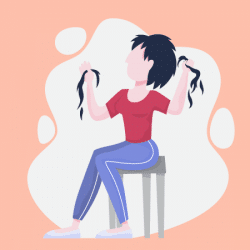Symptoms of Opioid Addiction

Symptoms of Opioid Addiction
Opioid addiction is a chronic and debilitating disease which negatively impacts every aspect of a person’s being. Opioid addiction exposes its victims to multiple psychological, physical, and behavioral symptoms which can derail anyone’s personal and professional life.
Psychological Symptoms of Opioid Addiction
Opioid addiction is a neurobiological disorder which occurs when Opioids hijack the pleasure and relaxation centers of the brain. The primary psychological symptom of Opioid addiction is a powerful and compulsive desire to use Opioids, often in larger and more frequent doses. The brain develops tolerance for certain Opioid doses. That’s why someone who is living with addiction often require stronger doses of Opioids to experience their effects and avoid withdrawal. Opioid addiction may also cause a person to become unusually nervous, depressed, anxious, and irritable. They may suffer from long-lasting fatigue as well.
Behavioral Symptoms of Opioid Addiction
 Opioid addiction causes a variety of behavioral symptoms. because Opioids drastically affect the mind. Opioid addiction will inevitably affect how a person manages life and interacts with other people. For example, someone who is struggling with Opioid addiction might sleep significantly more or less than usual, neglect personal hygiene, and fail to enjoy and be interested in activities which were once interesting and enjoyable.
Opioid addiction causes a variety of behavioral symptoms. because Opioids drastically affect the mind. Opioid addiction will inevitably affect how a person manages life and interacts with other people. For example, someone who is struggling with Opioid addiction might sleep significantly more or less than usual, neglect personal hygiene, and fail to enjoy and be interested in activities which were once interesting and enjoyable.
Time management, concentration, and commitment become more difficult when cravings for Opioids overtake a person’s thoughts. People with Opioid addictions may isolate themselves from family and friends. They may even choose to only spend time with friends who support their addiction. Opioid addiction can also cause people to neglect work and studying. Consequently, Opioids might prevent someone from finishing a degree or getting a promotion. Ultimately, Opioids can leave a person without a job.
Furthermore, if someone starts to experiment with illegal synthetic Opioids, such as Heroin, to satisfy their addictive impulses, they risk legal prosecution in addition to the perils of overdose. Opioid addiction may also cause a person to behave recklessly, such as by driving under the influence. Overall, people who have an addiction to Opioids may alienate those closest to them, lose their ability to support themselves financially, and jeopardize their freedom.
Overcoming Opioid Addiction
With the right support from family, friends, and medical professionals, anyone can overcome addiction to Opioids. Recovery begins by taking a first step. If you or someone you know is using Opioids and experiencing symptoms of addiction, contact a treatment provider to discuss treatment options.